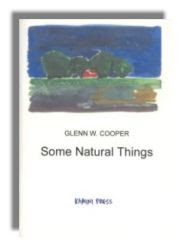

Top: Ted Weesner Jr.
Bottom: Ethan Gilsdorf.
Somerville writers Ethan Gilsdorf and Ted Weesner Jr. have a lot in common. They both grew up in Durham, New Hampshire, both their mothers were teachers, their fathers were both professors, and both writers lived abroad; Gilsdorf in Paris and Weesner in Prague. And both of these writers with serious cases of wanderlust will read from their works-in-progress at the Willoughby and Baltic art space at 195 G Elm St. Somerville on Dec. 14 at 7PM.
Gilsdorf, 41, and Weesner, 43, told me over coffee at the Sherman Café located in my stomping grounds of Union Square, that both are working on books they hope to complete later next year. Weesner will be reading an excerpt from the novel he presently is working on: “ Left Prague for Good” and Gilsdorf will read from his memoir/ travelogue: “ Escape Artists: One Man’s Quest To Find Reality Among Role Players, Freaks, Online Gaming Geeks, Fandom Addicts, World- Builders, and other Dwellers of Imaginary Realms.”
Both Gilsdorf and Weesner moved from their respective romantic European cities to Somerville for a number of reasons. Gilsdorf, who lived on the Right Bank of Paris for five years was a freelance marketing writer and a European correspondent for The Boston Globe, felt a need to come back to the States after his extended stay in the “City of Light.” Somerville is a city near his familial roots. One day he was in Davis Square, browsing in the now defunct store “Planet Pluto,” when he asked the store manager if Somerville would be a good fit for him. She answered in the affirmative and Gilsdorf was in like flint. He now lives in the Davis Square section of the city, and makes his living freelancing for The Boston Globe and other publications, as well as teaching at Grub Street.
Gilsdorf, like Weesner, said that he finds the Somerville community committed to the arts, ideas and dreams. Both men traverse our burg on their bikes. Weesner who teaches Creative Writing at Tufts said he loves the diversity of the city, and the accessibility to the museums and other cultural institutions the area offers.
Gilsdorf’s work-in-progress “Escape Artists…” is based on a series of articles on “Fantasy Geeks” that he has written about over the years. Like Steve Almond in his book “Candyfreaks,” that explores the subculture of candy fanatics, Gilsdorf submerges himself in the strange world of video games, online gaming, and the otherworldly denizens of these fringe societies.
Weesner, who moved back to Boston to attend Emerson College for his MFA is working on a fictional book that examines a young man’s flight to Prague from the U.S. to escape personal conflicts at home. Prague, in the 1990’s, when the novel takes place, was a cultural Mecca for disaffected young artists and writers.
The choice of the venue of the art gallery Willoughby and Baltic seemed a natural one. Gilsdorf said: “ It’s like an arts center and they are very open to all mediums and activities. I tracked the place down and chose it for a venue for the reading.”
Gilsdorf, now a resident of the “Paris of New England,” said he has no regrets about his move to Somerville. “ In Somerville there is nothing fancy. But inside these three- decker homes there is some creative energy happening.’ Hopefully this font of creative energy will be present at the Willoughby and Baltic Gallery Dec 14.
French Memory Stick
by Ethan Gilsdorf.
She replaced my memory.
I was running slow. Thinking too much, to boot.
Those five years had to go.
First, replace the keyboard,
aka, clavier, harpsichord,
everything you ever touched.
Sure, I had to abandon old habits,
teach myself fresh strokes, techniques.
The bed no longer the Seine, but the Charles.
Adieu cedilla, accents grave and circumflex,
bonjour QWERTY, Caps Lock, Shift.
Home and Escape remain the same.
Meanwhile, battering with my new RAM
I attacked the crumbling castle. My speed increased.
I resisted looking back not even for old files
said to have been circuitously misplaced,
still linked to a landmark not far from my desktop.
You might want to keep that French memory stick,
she said. Shtick. Could be worth something, some day,
snapping shut the gunmetal panel
and tightening the screws.
I’m moving on now. I’ve already
lost my shortcut to the saved emails, the bowling party,
some French-sounding place like Monet-sur-Quelque Chose.
My keys, they don’t stick.
Memory, she is cheap.
From "Left Prague for Good"
By Ted Weesner, Jr.
One full decade earlier a black limousine pulled up in
front of my empty apartment. I lived on the top-floor
of a triple-decker on a street lined with them. The
limo driver, I could see from a window above, was
examining the statue of Mary Magdalene in the front
yard. Though faded to seafoam green and flecked with
soot, she was shielded from rain by a half-buried
clawfoot tub, a custom of the local Portuguese
immigrants. The driver draped a pink newspaper across
his steering wheel, then pulled something shiny from
the glovebox. He held it inches from the pink paper.
A magnifying glass! How very appropriate. This was
just the sort of scrutiny I needed to escape. To get
out from under. Thus the limousine, even if it cost
more than I had.





